The world is a big, wonderful place full of facts we never thought possible. For instance, if a pregnant mouse has a sudden medical issue, the fetus will send stem cells to heal the mother, increasing its chances of survival as well. Fetal stem cells have been found in human mothers as well, dubbed by science as microchimerism.
Bright Side dug up some more marvelous facts about nature and its creations, upholding our yearly resolutions to spread knowledge and joy.
1. The heart slows when your face touches water.
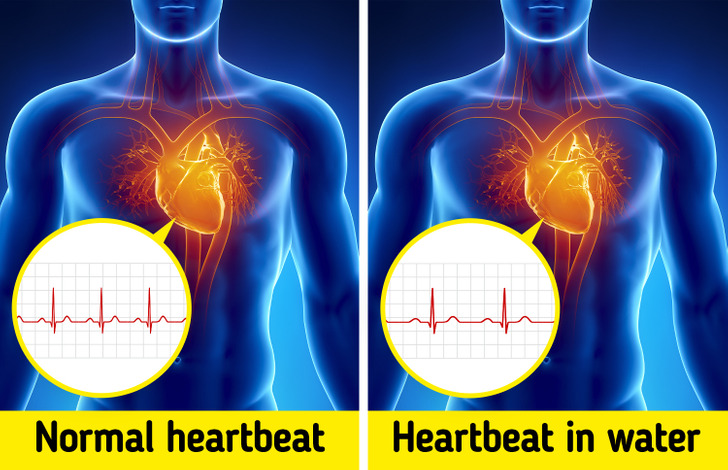
As mammals, we can’t breathe underwater, so as part of the mammalian dive reflex, our heart rate goes down in the water — more so if we go underwater. Even splashing the face with water makes the heart slow down, making it a great way to calm down.
2. Fungus can break down plastic in weeks.
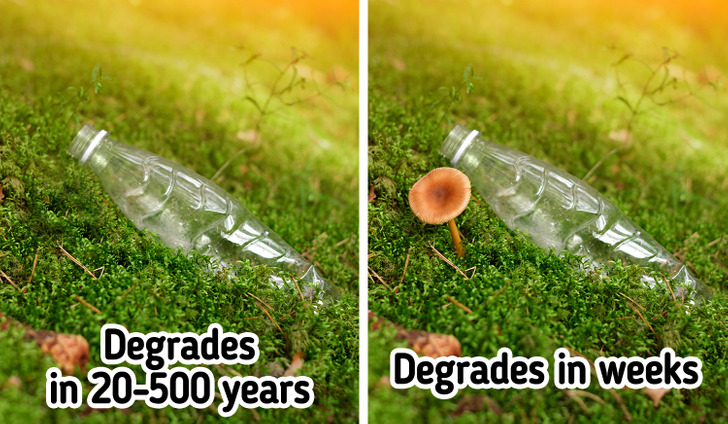
It is said that in the future, there may be more plastic in the ocean than fish. This is why the plastic-eating fungus is great news, and there are around 50 new species of such fungi discovered already. One of the fungi discovered can digest plastic within 2 months, so there’s hope for us yet.
3. Newborn babies can support their own weight.
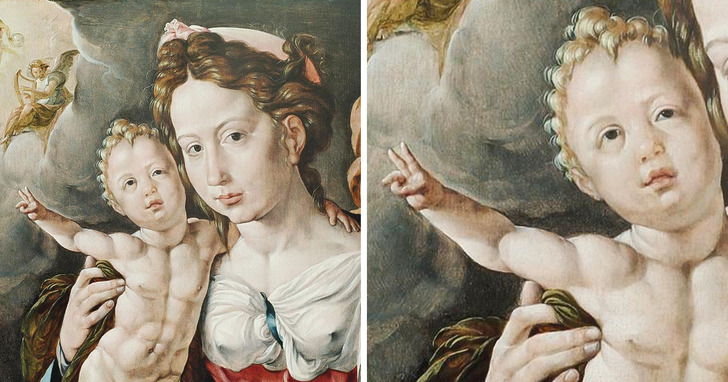
Newborn babies are strong — strong enough to be able to grasp things in their tiny fists and even support their weight as shown by an experiment done in the nineteenth century. Louis Robinson witnessed babies able to hang from a walking stick, from 10 seconds to 2 minutes and 35 seconds.
4. Koala fingerprints have been mistaken for human ones.
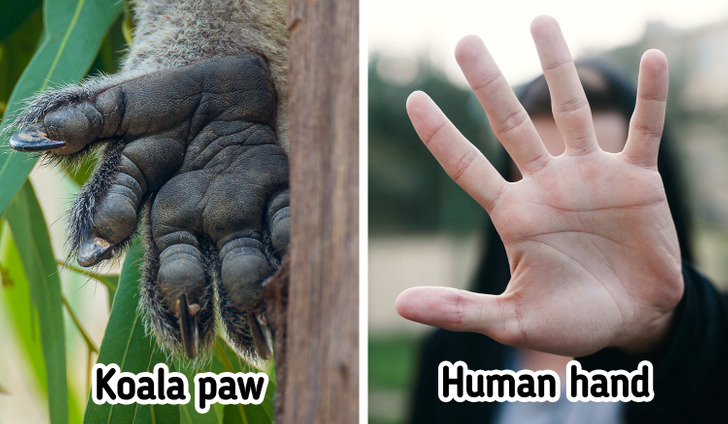
We’ve been told that our fingerprints are unique, and they are. But the fact remains that even though we share a common ancestor with the koala that was alive 100 million years ago, koala fingerprints look very similar to human fingerprints, as do chimpanzee fingerprints for that matter.
5. Snails can sleep for 3 years.
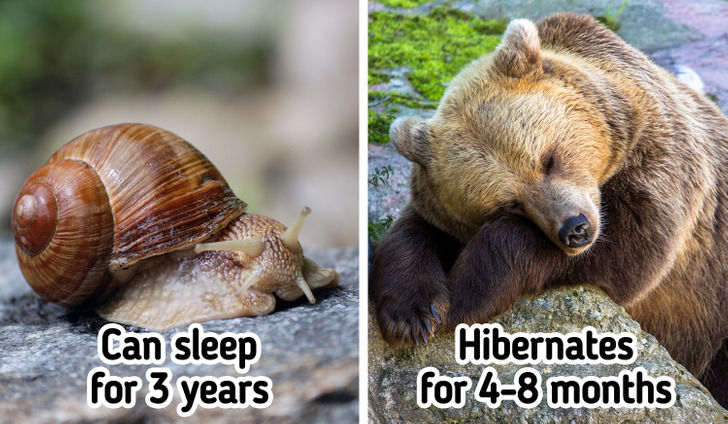
If you thought bears had it good with hibernation, meet the snail. Snails can sleep rather than hibernate for 3 years at a time without needing food. Of course, this is with some snail species, not all of them. Meanwhile, bears usually hibernate for just 4-8 months.
6. Sloths need 2 weeks to digest food.
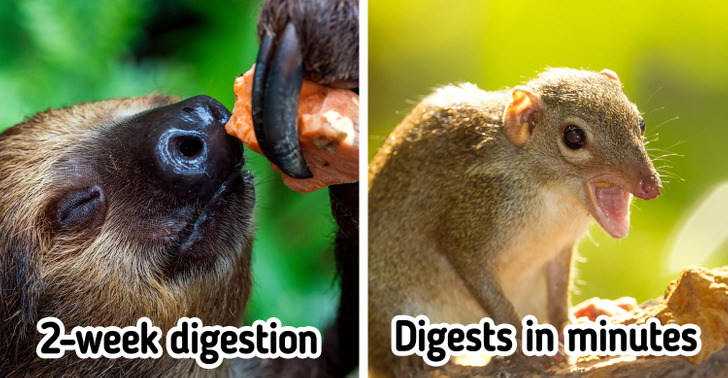
Sloths don’t only move in slow motion — even their insides move slowly, ostensibly to preserve energy, which is why a sloth’s digestive system takes 2 weeks to process the food it ate. Plus, most of what it eats is indigestible, giving it very little energy from each slowly chewed mouthful.
On the other end of the spectrum lies the shrew, whose digestion takes mere minutes and is done so fast, not much of it is fully digested. This is the reason why shrews eat their own feces. They can die of starvation in a matter of hours if they don’t eat.
7. Your brain ignores seeing your nose.
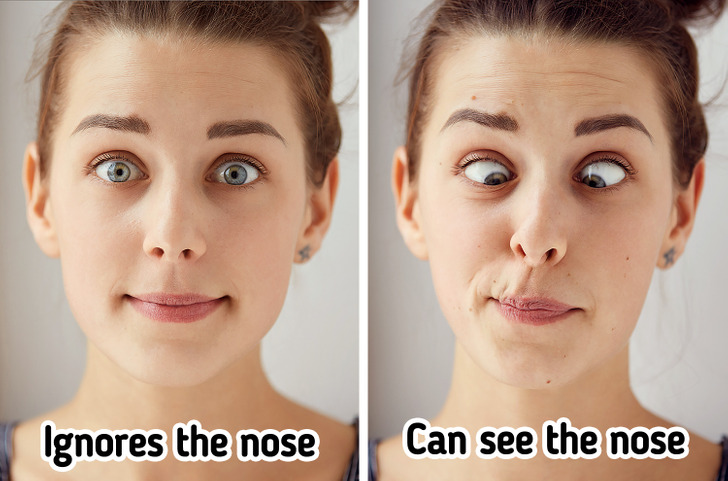
We can see our nose all the time, it’s just that the brain tends to ignore it because it’s a constant visual stimulus. It’s the same with people who wear glasses. After a while, they simply stop noticing them.
8. Your forearm is the same length as your foot.
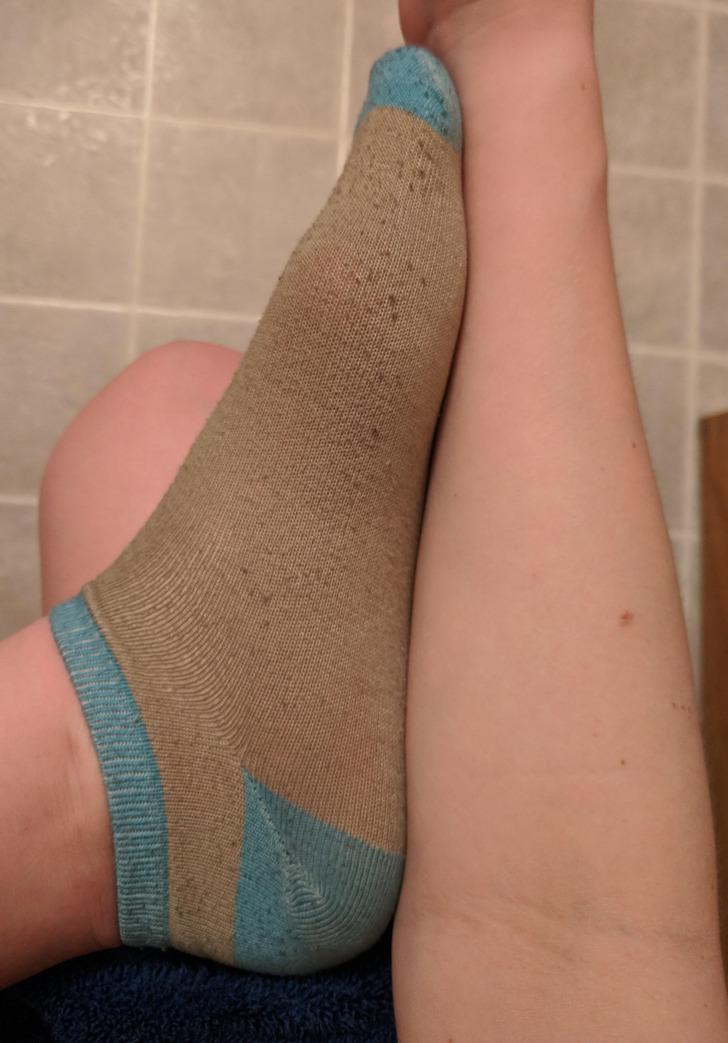
If you don’t have the time to try on a shoe, measure it from your elbow crease to your wrist. If it fits or is just a little smaller, it would fit your foot because the length of your forearm is the same as your foot. And this is just one of many human body ratios that are a marvel in themselves, including the fact that your femur bone is one-quarter your height.
9. You can “see” your white blood cells.
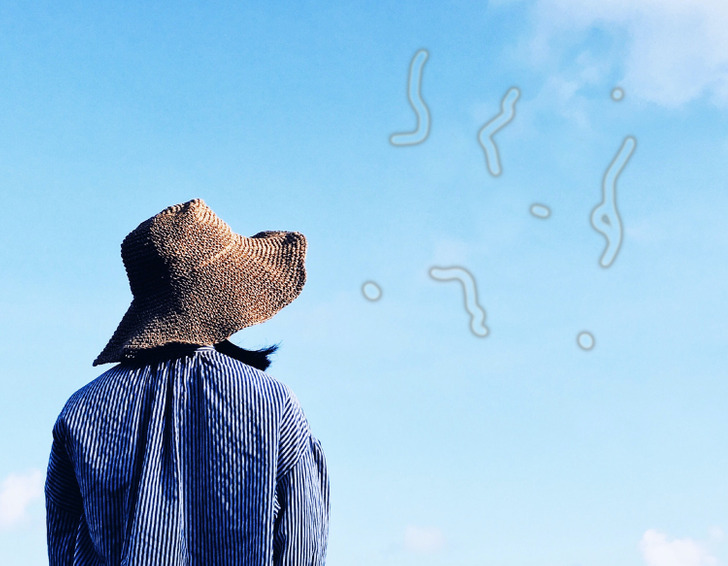
If you look up at a cloudless, bright blue sky and see some wiggly things at the periphery of your vision, you’ve just experienced the blue field entoptic phenomenon. The wiggly things are white blood cells moving in the fine blood vessels moving in front of the retina, at the back of the eye.
10. Human beings have striped skin, but only cats can see it.
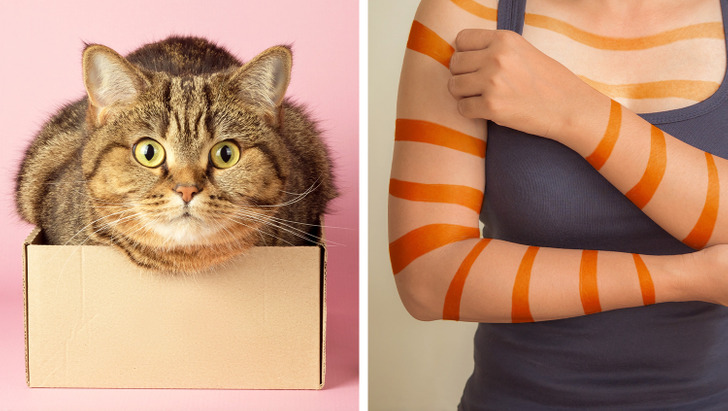
Human beings have stripes and patterns on the skin too, and they are called Lines of Blaschko, name eponymously by the scientist who discovered them, Dr. Alfred Blaschko. These are closer to tiger stripes, forming more of a V-pattern fanning out from the center to the extremities. These lines are visible under UV light, a spectrum that cats can see too, which is why cats can see you as a striped being as well.
Which of these facts turned out to be a revelation for you? Share your extreme nature facts with us and blow us away.
Preview photo credit Shutterstock.com, Shutterstock.com
Catherine Zeta-Jones’ daughter is growing up fast, and she looks just like her famous mom

It can’t be easy growing up under the bright spotlight that comes with having two famous Hollywood actors for parents.
To put it mildly, Dylan Michael and Carys Zeta Douglas, the daughters of Michael Douglas and Catherine Zeta-Jones, will probably never lack anything, even though there are undoubtedly worse places to be born.
The media has been keenly observing Dylan and Carys’s growth, with many speculating about whether they will emulate their well-known parents and achieve fame of their own.
At least it appears that we finally have a solution for Carys.
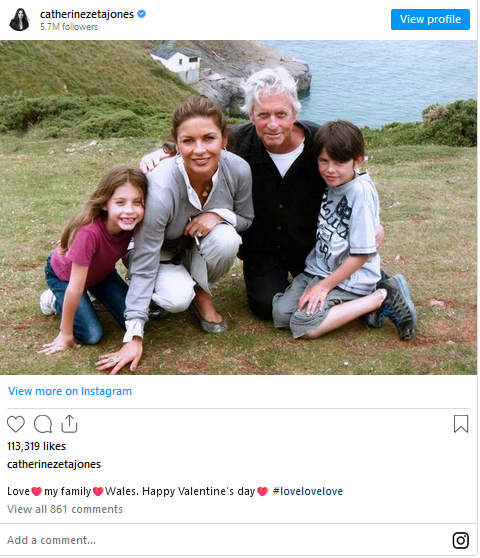
Zeta-Jones has been open about her expectations that her two children would try to follow her into the big screen.
“You want to look at them when they’re on stage,” the 49-year-old said in an interview with Hello! Magazine. They’re interested in the craft as well. My son wants to study theater for his bachelor’s degree. My daughter thought that being an actress would be a better career than being a pediatrician until she was five years old.

Since both of the kids wish to follow in their parents’ footsteps, a lot of people are interested in seeing how the two kids grow. For those who require further proof, the recent excitement around Carys—who has been receiving a lot of attention due to the fact that she is starting to resemble her mother more and more every day—is adequate.
When the teenage girl made her runway debut at New York Fashion Week the previous year, she generated a lot of attention.

She has been under the radar ever since, which makes sense considering that she is only 15 years old. But when she and her mother attended another fashion event this week, the radio quiet was broken.

Carys and Catherine stole the show at the Dolce & Gabbana Alta Moda women’s couture event held at the New York Metropolitan Opera House. When the mother and daughter showed up dressed same, they posed for multiple pictures that highlighted their similarity.

Like her mother, Carys is definitely becoming into a lovely woman. Moreover, according on all accounts, her disposition is equally benevolent!
Please share this post if you enjoy Michael Douglas and Catherine Zeta-Jones.

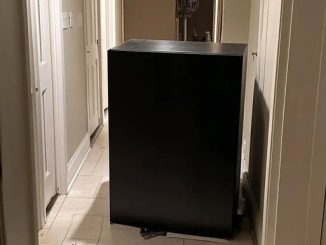
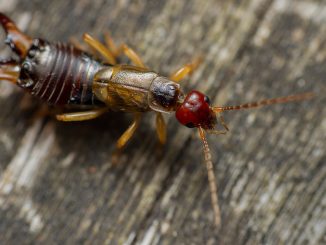
Leave a Reply